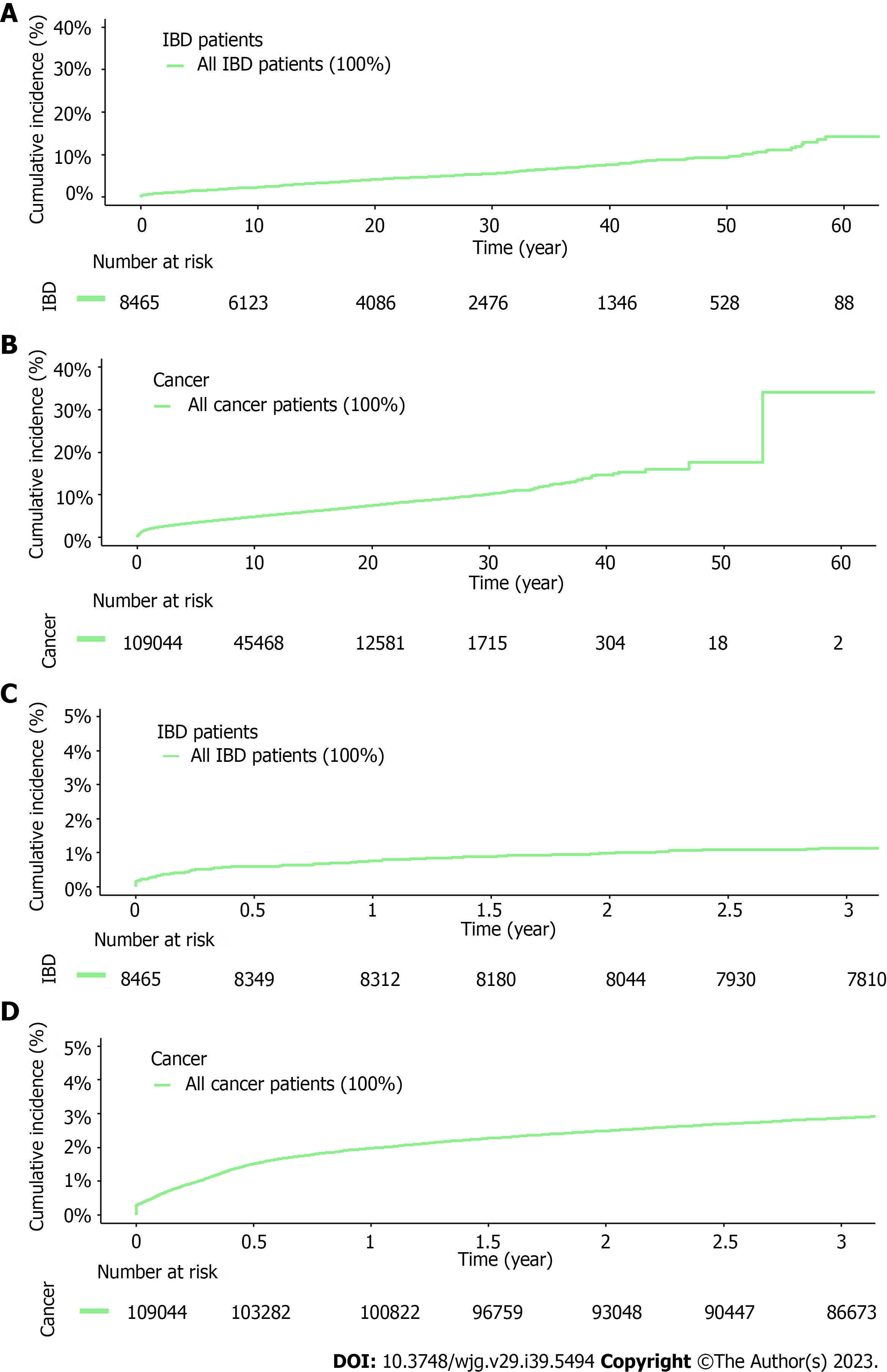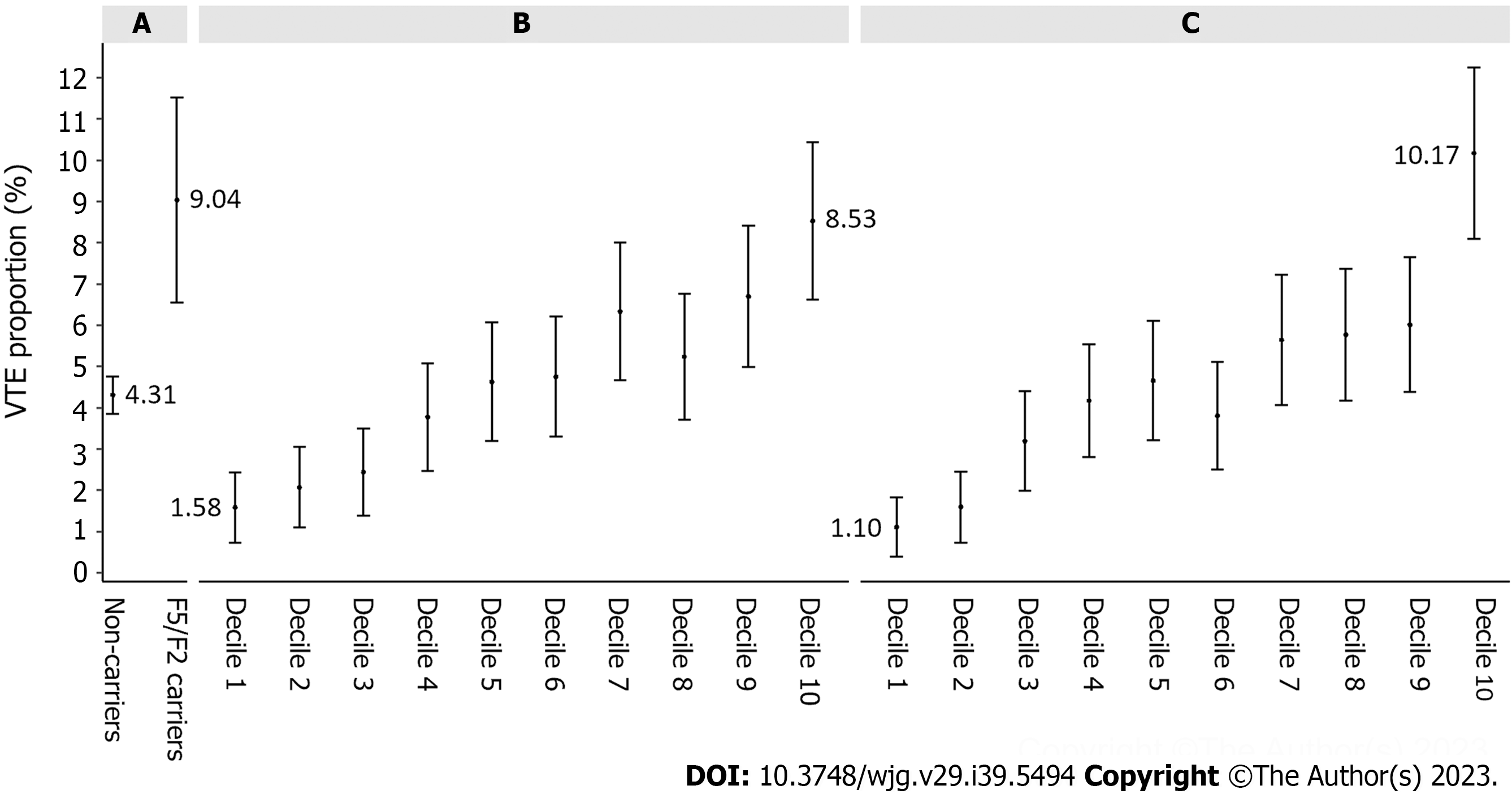©The Author(s) 2023.
World J Gastroenterol. Oct 21, 2023; 29(39): 5494-5502
Published online Oct 21, 2023. doi: 10.3748/wjg.v29.i39.5494
Published online Oct 21, 2023. doi: 10.3748/wjg.v29.i39.5494
Figure 1 Kaplan-Meier analysis.
A and B: Kaplan-Meier analysis for time to incident venous thromboembolism in the UK Biobank during the entire follow-up period for inflammatory bowel disease (IBD) patients (A) and cancer patients (B); C and D: Within the 3 years after IBD diagnosis for IBD patients (C) and cancer patients (D). IBD: Inflammatory bowel disease.
Figure 2 Proportion of incident venous thromboembolism in the UK Biobank by carrier status of F5 factor V leiden and/or F2 prothrombin gene mutation, decile of polygenic scorenonF5/F2, and decile of original polygenic score.
Dot and vertical line indicate mean and 95% confidence interval, respectively. A: Carrier status of F5 factor V leiden and/or F2 prothrombin gene mutation; B: Decile of polygenic score (PGS)nonF5/F2; C: Decile of original PGS. Dot and vertical line indicate mean and 95% confidence interval, respectively. VTE: Venous thromboembolism.
- Citation: Rifkin AS, Shi Z, Wei J, Zheng SL, Helfand BT, Cordova JS, Biank VF, Tafur AJ, Khan O, Xu J. Risk assessment of venous thromboembolism in inflammatory bowel disease by inherited risk in a population-based incident cohort. World J Gastroenterol 2023; 29(39): 5494-5502
- URL: https://www.wjgnet.com/1007-9327/full/v29/i39/5494.htm
- DOI: https://dx.doi.org/10.3748/wjg.v29.i39.5494














